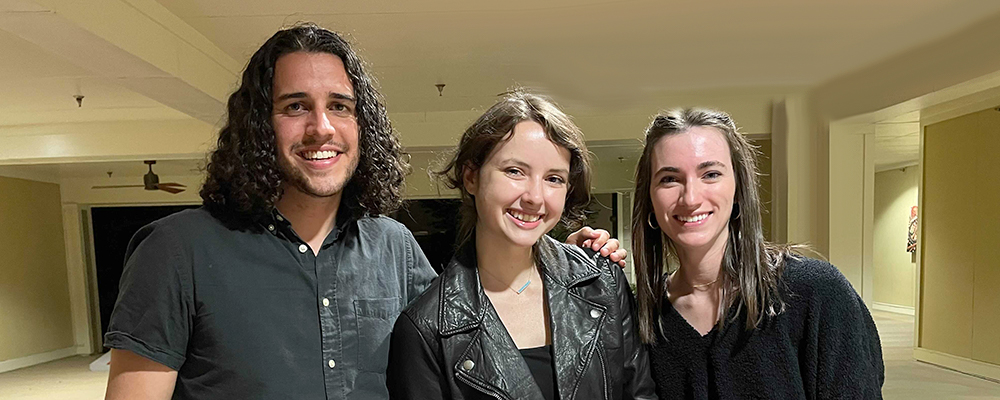“The MSA is different from any program you have been to.”
Above is the exact sentence I heard from the alumni I contacted when I decided to attend the MSA program. In my mind, I wondered what they were talking about. How are the challenges at the Institute for Advanced Analytics different from those of other graduate schools? Were they exaggerating?
Finally, I came to the program and realized how unique the program is in terms of challenges and opportunities. The challenges are overwhelming if you underestimate the amount of work you need to put into the program and the changes you will encounter.
Here are my tips on navigating the challenges.
Prepare Before Coming
- Concepts: Try to avoid coming as a complete novice. Check the curriculum online and familiarize yourself with as many concepts as possible. You do not need to know the topics comprehensively, but ensure you will be comfortable learning them on higher levels.
- Fast speech: Most instructors talk faster than you may be used to. If you are from a country where words are slowly pronounced, you may find it difficult to easily grasp instructions. Listen to videos from the Institute’s YouTube Channel to get a preview of the instructors’ way of speaking.
- Multi-cultural accents: The MSA program brings people from diverse backgrounds, such as race, languages, profession, etc. To be able to understand your peers and instructors better, get your ears acquainted with many accents. Watch a lot of movies from America, Asia, Africa, etc.
- Travel down early: If possible, arrive in North Carolina early to sort housing, phone, immunization, mobility, bank account, etc., before the lectures start. Once the program begins, you will become super busy. To keep up with the challenges, you must be settled and maintain a routine that works for you.
Expect Changes
If you come from outside the United States, you will encounter differences in how things are done. Expecting change and keeping an open mind are the ways to go. Some of the differences you will encounter are:
- Fast lifestyle: Life is fast in America. Everyone moves as if 24 hours per day is not enough. You will have to work hard to adapt to the fast lifestyle, especially if you are from a relaxed environment.
- They mean what they say: All the faculty and staff are straightforward and professional. When they say, “Meet me at 3:15 p.m.,” they are not suggesting to meet between 2 p.m. and 4 p.m. They mean that they need you at the door at precisely 3:15 p.m.
- Many assignments: Expect to do a lot of homework. A course can have quizzes, labs, assignments, projects, and examinations. Starting your homework immediately after it opens is crucial in navigating this.
- If you ‘cram,’ you fail: Quiz and exam questions here are conceptual. They test your UNDERSTANDING of the concepts, not how well you superficially recorded the texts in your brain.
- Plagiarism is a big deal: The instructors expect you to submit original work. Adopting insights from someone’s work is accepted, if they do not form most of your work and are cited. If you use anyone’s work, you must reference them. Learning how to work independently to create original work will help.
- Play is part of learning: The MSA program managers know that the program can be overwhelming, so they encourage you to find relief in doing other things you love, like music, sports, and volunteer work. In fact, we have a ping-pong table just for the MSA class.
- Time is the most valuable asset: You will be bombarded with many assignments and overwhelmed if you are not organized and know how to manage your time.
Know that Americans are More Open-minded than You Think
Back home in Africa, I watched movies that showcased Americans as people who concentrate so much on ‘SELF’ and do not have time for others.
Coming to the MSA program changed my perspective. I realized that Americans focus on themselves, not because they do not want to help or accept others, but because they feel they may invade others’ privacy if they come too close. There are so many laws in the US that influence how people interact.
Americans do not assume. Many of them stay away until you ask them to help. They can respect the perspective of others and can be strong allies.
Use Available Resources
MSA has many resources to support you:
- Everyone wants you to succeed: As unbelievable as it may sound, every faculty and staff member wants you to succeed and uphold the IAA brand. They make the environment conducive for your success.
- Instructors’ walk-in policy: You can easily go to your instructors to clarify any concept.
- Your peers: It is tough to get into the MSA program. For your classmates to have made it into the program, they are bright and have unique values to add to your perspective. Make sure you learn from them.
- All courses are intentionally developed to grow you: In this program, you will see classes that initially seem unrelated to becoming a data professional. When you go through it, you will realize how important they are for your growth.
- Coaches: Each MSA student has a coach who listens to and helps set attainable goals to navigate the program’s rigor.
- Career Services: They help you develop your brand until your actual value comes out.
In conclusion, as you think about this program, take time to evaluate where you are, the skills you should have to succeed, and what you need to do to bridge the gap.
Columnist: Ngozi Emeh-Festus
